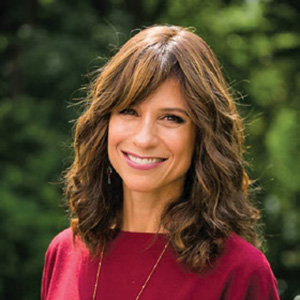
This is an article that I have been thinking about writing for some time now. I am sure that I am not the first to touch on this subject and I hope that I am not the last.
When a family faces a child with a serious medical diagnosis, life turns upside down. Besides the physical challenges, schedules, emotions, finances, relationships and nerves can all be thrown into chaos. As it should be, the community rallies around families facing medical challenges. That support can be a lighthouse in a turbulent storm and its value is immeasurable.
But what happens when a family faces a child with mental illness? Parents of children with mental illness also spend countless hours meeting with doctors, therapists, school administrators and pharmacists. They also live with the stress of watching a child suffer. And their lives—and often the lives of the child’s siblings—are thrown into utter chaos.
The difference? There are no meals showing up at the door of families facing mental illness, no offers to send volunteers over to cheer up the “patient,” no tickets to sporting events being arranged or special camps where the child can go and have fun and forget their illness for a short time. In fact, not only do these families not get outward community support, but many of them drive the struggle deep underground, away from the eyes and ears of the community.
The isolation and lack of support can be just as painful as the illness itself. Yes, there are organizations to help families struggling with mental illness. But community support is huge. Just ask any family that has benefitted from that support for a child with a medical illness. Ask them how the chizuk of the community kept them going in the darkest times. How the comfort of not feeling alone bolstered them in times of crisis and despair. How the hot meals, homework helpers, gifts for the patient and siblings, even financial assistance, made the ordeal more bearable.
Then ask a family struggling with a child with mental illness about their experience with community support.
Likely the family told no one. It’s not hard to imagine why.
Telling the community still risks judgment, shaming, fear reactions, finger-pointing, avoidance and lack of understanding. Rejection is even more painful than suffering in silence. So many do just that.
I wish I could offer a solution but human nature is not so easily swayed. What I can offer is a bit of perspective that may help shift judgment to openness and support.
Mental illness is not a psychological weakness or a result of bad parenting. It is often as physiological as diabetes or cancer or hair color. It can often be treated with medication and appropriate therapy modalities.
No one would choose mental illness any more than they would choose cancer. But like cancer, if not treated properly, it can be deadly. Isolation makes it worse.
What if it were you and your family struggling? How would you want to be supported?
Unsolicited advice is rarely what a family needs. An understanding ear, a genuine offer to help with practical matters such as driving carpools or making meals and a loving and non-judgemental attitude will be much more welcome.
I hope that one day, families struggling with any kind of illness will benefit from the unconditional love and support of the community. To that end, and to facilitate cracking the stigma families face, I encourage you to use the following “4 I’s” framework when talking to family, friends or community members about mental illness. The 4 I’s are:
1. It is an illness.
2. It can happen to anyone.
3. It isn’t anyone’s fault.
4. It isn’t a choice.
There are a variety of mental health services available in the community, including Jewish Family and Children’s Services (www.jfcsnnj.org), Jewish Family Service Clifton-Passaic (jfsclifton.org) and its Eric Eliezer Center for Hope, Project Ometz (www.projectometz.org ) and Refa’enu (refaenu.org).
By Atara Weisberger
Atara Weisberger, MA, CPT, CHWC, is a Mayo Clinic Certified Health and Wellness Coach and owner of Tribe Coaching. Atara specializes in women’s and family health and has successfully coached hundreds of clients in the past two decades to a happier, healthier and more vibrant life! Atara’s philosophy of “One size fits one” creates an individualized experience for each client to maximize success. She can be reached at www.tribecoaching.net, 973-988-3117 or [email protected].










